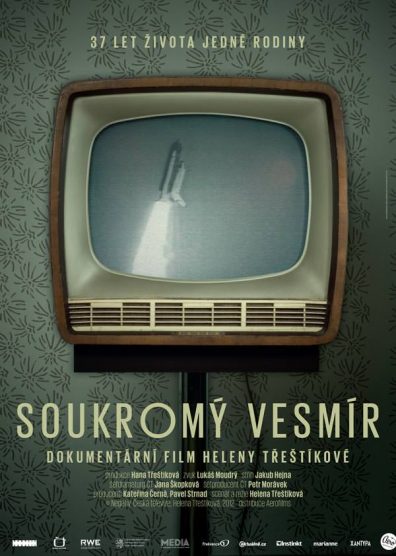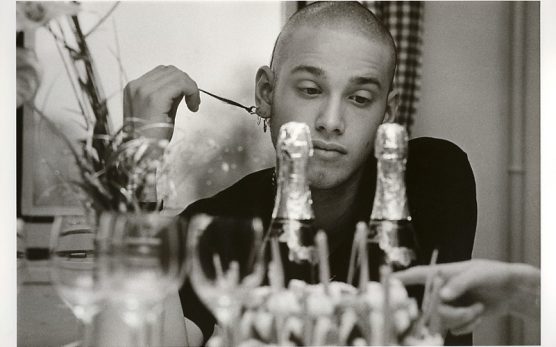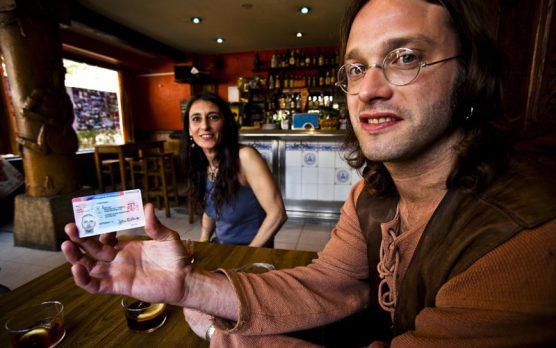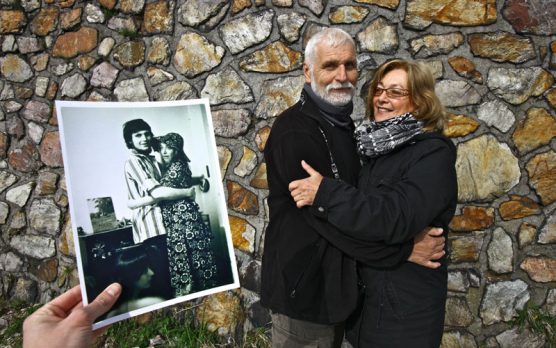How long have you known Jana and how did you come across the idea to choose her as a subject of your documentary?
Jana’s mother was a classmate of my mother so the two of us have actually known each other since our birth.
In 1974 Short Film production company approved of my theme of making a documentary about changes that motherhood brings to a woman. At that time I learned Jana was pregnant so I immediately addressed her. At first she was not very keen on that idea but eventually she agreed and I was thrilled. And so a 15-minutes film The Miracle came to existence.
Your film is based on diaries of Kettner family, how many of the diaries were there and which information surprised you?
The whole diary consists of over 30 paper notebooks. I was amazed by the way Petr wrote the diaries: consistently, lightly, with a humorous and detached attitude and a silent unpretentious love.
In your film you concentrate on “a private universe” of Kettner family, why isn’t there more resonance of those times?
We tried to portray just a limited amount of symbols of that period so the film was not overburdened with “the big history” at the expense of the small one. We wanted the whole archive footage to make sense and relate to what was happening in Kettner family.
How did you perceive the period of normalization in which a big part of the film takes place?
Now I perceive those times in a kind of detached way as well as with a slight nostalgia but I do realize that it was a time of wasted hopes and sometimes even of desperation. But we were young, full of energy and eager to live despite the harsh time.
Did Honza ever mind the fact that he had been filmed before he could give his consent, or make his own decision in this respect?
Additionally Honza gave his symbolic consent to his parents on his 18th birthday.
Did you ever want to quit filming?
There was a certain period of time when Honza disappeared somewhere abroad and I was not sure whether we will ever be able to finish the project.
What was it like to work with editor Jakub Hejna who had cooperated with you on your films “Katka” and “René”?
This film would never come to existence without Jakub Hejna. His asset is fundamental and in the final credits he is not only mentioned as the editor but also as the assistant director. Jakub is very active and creative, we wove the whole story in the editing room together. He is always ready to make changes and try different things. There were several versions of the film and getting to the final cut was very complicated. Squeezing 37 years into 80 minutes was an extremely hard task.
One of the story lines is Karel Gott’s career. What is your attitude toward this person?
Karel Gott is a constant and a fundamental icon of our lives. Once, in the rough times of president Husak’s normalization, he would tell this joke: “Do you know how Husak will be perceived in 50 years? As an irrelevant politician from the era of Karel Gott.” And here we go! When I was pondering about symbols of the period in which Private Universe takes place, naturally it was Karel Gott who came to my mind.
How did you get hold of the juicy archive recording of Karel Gott speaking about his experience with LSD
At the end of 1960’s LSD was a big thing and various celebrities experimented with it. I remember hearing someone say that Karel Gott was one of them even back then and I might have actually heard some radio show where he himself talked about it. A friend of mine who collects old tape recorders bought an old Sonet in some antiques a year ago and there was a tape inside. Listening to radio recordings on that tape he came across Karel Gott talking about LSD. This friend knew what I was working on and he played that tape for me. It seems to me that the recording was meant to become a part of my film, having found me this way…
How did Kettner family react to the final cut of the film? Did they have any remarks?
They laughed throughout the whole screening. Their only wish was to add an information about Honza having managed to graduate at jewelry design school.
While still working on the final cut you introduced the documentary at a film festival in Leipzig. How did people react?
It was an experiment brought up by the Leipzig festival: professional filmmakers discussing an unfinished film. Forty projects applied and they chose only three of them – which made me very happy. It seemed to me that people from foreign countries understand the film even though it is full of facts strictly related to the Czech Republic. Their reactions were very positive and they seemed to be captivated by the story of our film family.







